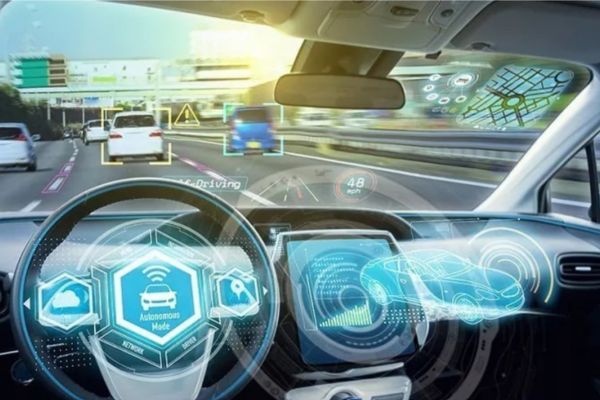The Indian automotive sector is undergoing a monumental shift, driven by the rapid adoption of Artificial Intelligence (AI) and Machine Learning (ML). The global automotive AI market, valued at USD 3.22 billion in 2023, is expected to grow to USD 35.71 billion by 2033, with a compound annual growth rate (CAGR) of 28% from 2024 to 2033. This surge can be seen in India as well, attributed to our tech-savvy youth and contemporary data-driven ecosystems where every transaction and interaction generates valuable insights.
Data: The Lynchpin of AI and ML
At the core of the automotive sector’s success with advanced technologies lies the availability of accurate and expansive data. As the market undergoes digitization, data collection and analysis have become more robust, with the potential to offer evergreen convenience, transparency, and efficiency. ML and AI have cemented themselves as the future of the industry as they enable the analysis of previously unavailable or indecipherable data in order to generate new insights. These new insights can then be used to make processes less expensive and time-consuming. Moreover, this data is essential for training advanced software to identify and organise key data points, make recommendations, and improve turnaround times.
For instance, AI-powered car searches can revolutionise the way buyers and sellers discover vehicles online. A single chatbot on a marketplace platform, equipped with access to inventory and user search patterns, can provide advanced recommendations, leading to faster purchases and a more efficient buying process. Here are some more key ways in which intelligent technologies and learning algorithms are propelling the automotive industry forward:
Manufacturing and Supply Chain Management
Many companies are employing machine learning to design and develop safer and more efficient vehicles and components. These sophisticated systems are also optimising vehicle manufacturing processes, particularly through the use of robotic assembly lines and advanced quality control mechanisms. Predictive demand forecasting and inventory management are other crucial areas where these tools are making a substantial impact. For auto dealers, AI-driven analytics can predict which vehicles will be in demand, allowing them to manage their inventory more effectively. This reduces overstock and stockouts, ensuring that the right cars are available at the right time. This data also creates an opportunity for vehicle manufacturers to optimise procurement of raw materials and production to reduce costs.
Insurance and Financing
Smart technologies are revolutionising the insurance and financing sectors of the automotive industry, streamlining processes and enhancing efficiency. Integration with Original Equipment Manufacturers (OEMs) and dealer management systems allows for expedited loan disbursement and the creation of tailored financial products. In insurance, AI-driven apps allow customers to upload images or scan their damaged vehicles, instantly analysing the severity of damage and estimating repair costs by comparing images to a comprehensive database. This real-time feedback includes information on the insurance coverage, enabling customers to make informed decisions quickly. By eliminating traditional manual assessments, these tools make the claims process faster, more transparent, and hassle-free, ultimately improving customer satisfaction and reducing operational costs for insurers.
Optimal Pricing in Used Vehicle Market
A notable example of AI enhancing transparency is in the used vehicle market, where it provides access to historical transaction data. This not only aids customers in making informed decisions but also helps dealers set competitive prices based on historical trends. For example, predictive algorithms are playing a vital role in analysing past sales data and current market trends to predict the optimal pricing for used cars, ensuring fairness and transparency. Studies show that these data-driven pricing methods can be up to 50% faster than manual approaches.
Vehicle Ownership and Repairs Experience
Advanced Technologies also significantly enhance the overall vehicle ownership experience through predictive maintenance, which can foresee potential issues and recommend timely interventions, thus preventing costly repairs and downtime. Learning algorithms read and analyse sensor data, vehicle error logs to predict when a vehicle part is likely to fail, reducing malfunctions for users. By analysing past transactions, these systems can provide accurate estimates and identify common issues. Improved customer engagement and retention are achieved through automated maintenance reminders and better discovery of repair services. Additionally, AI enhances in-car entertainment systems by integrating voice assistants and other interactive features, providing a more engaging and enjoyable driving experience.
Marketing and Remarketing
OEMs are also leveraging intelligent tools to transform their marketing strategies, allowing them to create highly personalised and targeted campaigns. These systems analyse vast amounts of data, including consumer preferences, browsing habits, and past purchasing behaviour, to deliver customised content and offers that resonate with individual consumers. Additionally, they also optimise the timing and placement of ads, ensuring that consumers see relevant content at the right moment, increasing the chances of conversion.
On the remarketing front, AI can also help re-engage customers who have previously interacted with their services but have not yet completed a transaction. Advanced systems can identify potential buyers who may have abandoned their searches and retarget them with tailored ads or offers.
Engineering and Design
Sophisticated systems are optimising vehicle engineering and design through tech advancements such as robotic assembly lines, which improve precision and efficiency in the design and production process. This can help auto manufacturers and dealerships to reduce costs and ensure higher quality. Advanced simulations and modelling help engineers create more innovative designs, enhancing vehicle performance and safety.
Autonomous Driving
One of the most significant impacts of Advanced technologies on the automotive industry is the advancement of autonomous driving. AI-powered Advanced Driver Assistance Systems (ADAS) leverage a combination of sensors, cameras, radar, and other technologies to monitor the vehicle’s surroundings and assist the driver in making safe decisions. These systems enable vehicles to perceive the environment, make real-time decisions, and navigate complex traffic scenarios with minimal human intervention. This technology can have endless possibilities in countries like India, where road safety is a challenge.
Embracing the Future
As AI and ML continue to evolve, they will transform vehicles into intelligent, interconnected ecosystems that enhance daily life beyond mere transportation. Embracing this technological revolution is essential for all stakeholders, including customers, manufacturers, dealers, financial institutions, and insurance companies, to drive progress in mobility. They can further be employed to make transportation safer, more efficient, and environmentally sustainable for future generations. The integration of intelligent systems and predictive algorithms into the Indian automotive industry is not just a trend but a necessity for advancing towards a smarter, more connected future. The potential is immense, and stakeholders must embrace these technologies to drive progress and innovation.

















